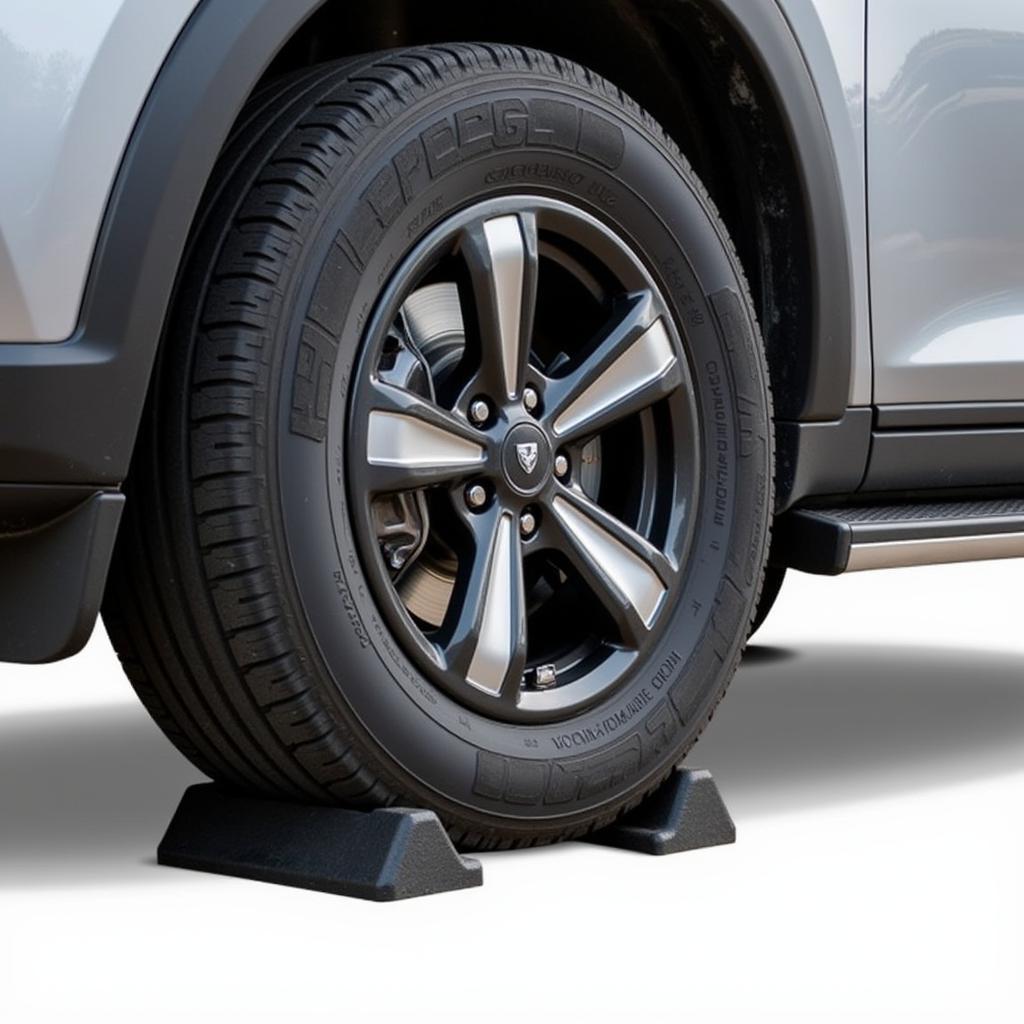Owning a car comes with its fair share of responsibilities, and one of the most crucial is maintenance and repair. Whether you’re a seasoned gearhead or a hesitant beginner, understanding the basics of fixing cars can save you time, money, and unnecessary headaches. This guide will equip you with the knowledge to tackle common car problems, from simple DIY fixes to recognizing when it’s time to call in the professionals.
Understanding Your Car’s Anatomy
Before diving into repairs, familiarize yourself with your car’s essential components. Knowing your way around the engine bay and understanding the function of major parts like the battery, alternator, and various fluids is paramount. A helpful analogy is to think of your car as a human body – each system needs to work in harmony for optimal performance.
Common Car Problems and Solutions
Many car troubles manifest as noticeable symptoms. Learning to diagnose these issues can be empowering.
1. Battery Problems: A dead battery is often the culprit behind a car that won’t start. Corrosion on battery terminals or a faulty alternator can be contributing factors. Who fixes car fuses? This is a common question, and the answer often lies in understanding your car’s electrical system.
2. Flat Tire: Knowing how to change a flat tire is a fundamental skill for any car owner. Keep a spare tire, jack, and lug wrench in your trunk, and familiarize yourself with their usage.
3. Overheating: If your temperature gauge spikes, it’s a sign your engine is overheating. This could be due to a coolant leak, a malfunctioning thermostat, or a more severe problem like a blown head gasket.
4. Braking Issues: Spongy brakes, squealing noises, or a longer stopping distance all signal potential brake problems. Brake pads wear down over time and require replacement.
5. Electrical Gremlins: From flickering headlights to malfunctioning power windows, electrical problems can be frustrating. Often, the culprit is a blown fuse or a loose connection.
When to DIY and When to Call a Pro
While some car repairs are straightforward, others require specialized knowledge and tools. Simple tasks like changing air filters, replacing wiper blades, or fixing sticky switches in a car can be handled by most car owners. However, more complex issues like engine repairs, transmission problems, or intricate electrical faults are best left to professional mechanics.
Essential Tools for the DIY Mechanic
For basic car maintenance and minor repairs, having a well-stocked toolbox is essential. Must-have tools include:
- Screwdrivers (Phillips and flathead)
- Wrenches (both metric and standard)
- Socket set
- Pliers
- Torque wrench
- Jack and lug wrench
- Multimeter
- Jumper cables
Preventative Maintenance: Your Car’s Best Friend
Regular maintenance is crucial to prolonging your car’s lifespan and preventing costly repairs.
-
Oil Changes: Regular oil changes are the cornerstone of car maintenance. Consult your owner’s manual for the recommended intervals.
-
Fluid Checks: Regularly check and top off essential fluids like engine coolant, brake fluid, power steering fluid, and windshield washer fluid.
-
Tire Pressure and Rotation: Proper tire pressure ensures optimal fuel efficiency and handling. Rotate tires according to your manufacturer’s recommendations.
-
Brake Inspections: Regular brake inspections can identify wear and tear early, preventing costly repairs down the line.
Leveraging Technology for Car Repairs
The digital age has revolutionized car repairs. Online resources offer a wealth of information, from detailed repair manuals to instructional videos. Additionally, OBD-II scanners, now readily available and user-friendly, allow you to retrieve diagnostic trouble codes from your car’s computer, giving you a clearer picture of potential issues.
Expert Insight
“Knowing even the basics about your car can empower you as a car owner,” says John Smith, Senior Automotive Engineer at [Company Name]. “Understanding simple maintenance tasks and being able to diagnose common problems can save you both time and money.”
Conclusion
Fixing cars doesn’t have to be an intimidating endeavor. By arming yourself with knowledge, the right tools, and a proactive approach to maintenance, you can keep your car running smoothly for years to come. Remember, while some repairs are within reach for the DIY enthusiast, knowing your limits and seeking professional help when needed is equally important.
If you’re ever in need of professional assistance or have any questions, don’t hesitate to reach out to us at AutoTipPro. Our team of expert mechanics is here to help. You can contact us at +1 (641) 206-8880 or visit our office located at 500 N St Mary’s St, San Antonio, TX 78205, United States.
FAQs about Fixing Cars
1. How often should I change my car’s oil?
Refer to your owner’s manual for specific recommendations, but a general rule of thumb is every 3,000 miles for conventional oil or every 5,000-7,500 miles for synthetic oil.
2. What should I do if my check engine light comes on?
Don’t panic! Use an OBD-II scanner to read the trouble codes, or take your car to a mechanic for diagnosis.
3. Can I use any type of fluid for my car?
No, always use the fluids specified in your owner’s manual. Using the wrong fluids can damage your car’s systems.
4. How do I know if my brakes need replacing?
Squealing noises, a longer stopping distance, or a vibrating brake pedal are all signs your brakes need attention.
5. Is it expensive to maintain a car?
Regular maintenance is far less expensive than major repairs. Stick to your car’s maintenance schedule to minimize costs in the long run.






Leave a Reply